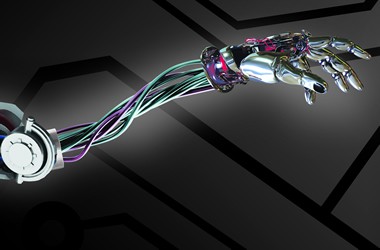The 9th International Cognitive Robotics Workshop
(CogRob-2014)
August 18-19, 2014
Prague, Czech Republic
(held in conjunction with ECAI 2014)
URL: www.ida.liu.se/cogrob2014/
--------------------------------------------------------------------------------
IMPORTANT DATES
--------------------------------------------------------------------------------
Submission deadline: May 25, 2014
Notification of acceptance: June 23, 2014
Submission of camera ready copies: July 20, 2014
--------------------------------------------------------------------------------
WORKSHOP DESCRIPTION
--------------------------------------------------------------------------------
The biennial International Cognitive Robotics Workshop (CogRob) is an
established workshop with an active and loyal community. The first
edition of CogRob was held in 1998 as a AAAI Fall Symposium in
Orlando. Given the interest in this topic, the workshop continued as a
bi-annual event and was held in Berlin (2000), Edmonton (2002),
Valencia (2004), Boston (2006), and Patras (2008), Dagstuhl (2010),
Toronto (2012), mostly co-locating with either AAAI or ECAI.
The CogRob 2014 edition will be held in Prague, Czech Republic, as
part of the twenty-first biennial European Conference on Artificial
Intelligence (ECAI-2014) workshop program (August 18-19, 2014). We
invite submissions of research papers from all researchers and
practitioners interested in the combination of artificial intelligence
and robotics.
WORKSHOP AIMS
Research in robotics has traditionally emphasized low-level sensing
and control tasks including sensory processing, path planning, and
manipulator design and control. In contrast, research in cognitive
robotics is concerned with endowing robots and software agents with
higher level cognitive functions that enable them to reason, act and
perceive in changing, incompletely known, and unpredictable
environments. Such robots must, for example, be able to reason about
goals, actions, when to perceive and what to look for, the cognitive
states of other agents, time, collaborative task execution, etc. In
short, cognitive robotics is concerned with integrating reasoning,
perception and action with a uniform theoretical and implementation
framework.
The use of both software robots (softbots) and robotic artifacts in
everyday life is on the upswing and we are seeing increasingly more
examples of their use in society with commercial products around the
corner and some already on the market. As interaction with humans
increases, so does the demand for sophisticated robotic capabilities
associated with deliberation and high-level cognitive
functions. Combining results from the traditional robotics discipline
with those from AI and cognitive science has and will continue to be
central to research in cognitive robotics.
This workshop aims to bring together researchers involved in all
aspects of the theory and implementation of cognitive robots, to
discuss current work and future directions. The workshop is concerned
with foundational research questions on cognitive robotics, as well as
robotic system design and robotic applications that utilize AI
methods.
TOPICS
We invite submissions of research papers from all researchers and
practitioners interested in AI and robotics, and their integration.
Topics of interests include (but are not limited to) knowledge
representation and reasoning, planning, scheduling, reasoning under
uncertainty, combination of logical and probabilistic reasoning,
cooperative decision-making, spatio-temporal reasoning, diagnostic
reasoning, commonsense reasoning, machine learning, symbol grounding,
cognitive science, cognitive vision, perception, motion planning,
human-robot interaction, natural language understanding, speech
recognition, and AI for robotics.
We especially welcome discussions and demonstrations of robotic
applications and implemented robotic systems that utilize AI methods.
FINANCIAL ASSISTANCE
A number of student grants will be available to support student
participation.
--------------------------------------------------------------------------------
SUBMISSION INSTRUCTIONS
--------------------------------------------------------------------------------
Potential participants are invited to submit either
* a regular paper (i.e., a technical paper for describing technically
sound, innovative ideas that can advance the state of cognitive
robotics; an application paper, where the emphasis is on its impact
on the robotic application domain; a system/tool paper, where the
emphasis is on its novelty, practicality, usability and
availability), or
* a short paper (i.e., a position paper describing specific questions
and issues that the participants feel should be addressed; a demo
paper describing a demonstration of a robotic application, system or
tool; a technical communication aimed at describing recent
developments, and new projects that are not ready for publication as
regular papers).
All papers will be presented during the workshop.
Papers accepted at the main ECAI conference (technical sessions)
should not be submitted to the workshop unless they are substantially
extended or revised; in that case the submission should state how the
final version will differ from the ECAI paper.
FORMATTING
Submissions are accepted in PDF format only, using the ECAI formatting
guidelines at: http://ecai2014.guarant.eu/ecai2014.tar.gz
Author names should be included.
Regular papers must not exceed six (6) and short papers must not
exceed two (2) pages, excluding references and appendices. Over-length
submissions will be rejected without review.
Papers must be submitted by the due date at the following EasyChair
submission site: http://www.easychair.org/conferences/?conf=cogrob2014
PROCEEDINGS
The workshop contributions will be published electronically.
--------------------------------------------------------------------------------
PROGRAMME COMMITTEE
--------------------------------------------------------------------------------
Alper Aydemir, NASA JPL, USA
Vaishak Belle, University of Toronto, Canada
Xiaoping Chen, University of Science and Technology of China, China
Mehmet Dogar, Massachusetts Institute of Technology, USA
Christian Dornhege, University of Freiburg, Germany
Malik Ghallab, LAAS-CNRS, France
Michael Gelfond, Texas Tech University, USA
Nick Hawes, University of Birmingham, UK
Joachim Hertzberg, University of Osnabrueck, Germany
Sertac Karaman, Massachusetts Institute of Technology, USA
Piyush Khandelwal, The University of Texas at Austin, USA
George Konidaris, Massachusetts Institute of Technology, USA
Gerhard Lakemeyer, RWTH Aachen University, Germany
Sheila McIlraith, University of Toronto, Canada
Daniele Nardi, University of Rome La Sapienza, Italy
Maurice Pagnucco, The University of New South Wales, Australia
Volkan Patoglu, Sabanci University, Turkey
Ron Petrick, University of Edinburgh, UK
Erion Plaku, Catholic University of America, USA
Orkunt Sabuncu, University of Potsdam, Germany
Alessandro Saffiotti, Orebro University, Sweden
Ken Satoh, National Institute of Informatics and Sokendai, Japan
Moritz Tenorth, University of Bremen, Germany
Michael Thielscher, The University of New South Wales, Australia
Stavros Vassos, University of Rome La Sapienza, Italy
Markus Vincze, Vienna University of Technology, Austria
Fangkai Yang, The University of Texas at Austin, USA
--------------------------------------------------------------------------------
ORGANISING COMMITTEE
--------------------------------------------------------------------------------
Esra Erdem, Sabanci University, Turkey
Fredrik Heintz, Linköping University, Sweden
--------------------------------------------------------------------------------
SPONSORS
--------------------------------------------------------------------------------
CogRob 2014 is generously supported by the AI Journal.





